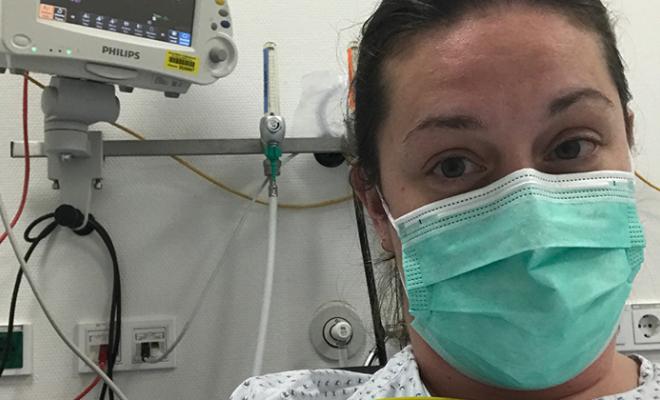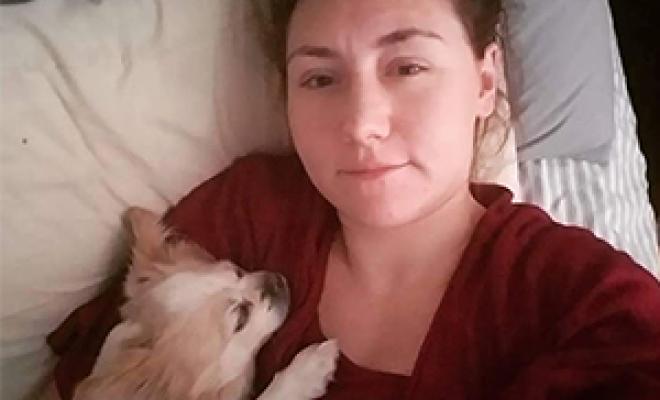Trikafta®!
Oh! Trikafta!
We were excited that our 6-year-old daughter, Tegan, could finally begin taking Trikafta. Her health had already improved after she started taking Orkambi®, but we had seen the significant health improvements many people were seeing on Trikafta and anticipated the same for Tegan. I noticed a big change within a few days of her being on Trikafta, but not the kind I was expecting.
Tegan went from being my happy, loving, nurturing, fun, free-spirited child to someone I didn’t recognize. She would grow angry if her toy wasn’t doing what she wanted — and she did not have a slow fuse. Tegan’s mood would go from 0–100 in seconds, which included throwing the toy, gritting her teeth, and screaming with clenched fists. She would scream and cry for such long and intense periods that she would eventually fall asleep. Following these episodes, I would notice popped blood vessels under her eyes, and she would be blotchy for days.
To see your loving child transition so quickly into someone you don’t recognize will take a toll on anyone. There was no way for me to calm her. She would lose control of her emotions, hit me, and scream that she “hated me” and I was the “worst mom ever.” Trying to console her wasn’t an option. Neither was punishing her, because I believed her behavior was caused by Trikafta. My only option was to walk away during these episodes so she could calm down.
My husband wondered where our child went and who this new version was. These were hard moments as a mom.
It wasn’t just us who noticed changes in Tegan’s personality. Tegan’s teacher told me about her aggressive behavior and emotional volatility, which the teacher found extreme. I felt like I couldn’t help her.
I got to work researching. I felt in my gut that something was off, and the only change she experienced was Trikafta. I knew the drug was probably too new to have any posts or research, especially for children Tegan’s age, but I didn’t think I would come up completely empty handed. My first stop was the CF Foundation’s website. After digging for what felt like forever, I found one lonely blog post about an adult who experienced side effects similar to Tegan’s.
I next spoke to our Vertex representative at length about what I was noticing and she informed me that Trikafta has a component to it that if you are prone to anxiety or depression, it will heighten it! A-HA!!! Finally! I felt like I finally was seeing that there really was something going on in Tegan’s body that left her feeling out of control. I immediately contacted her care team. They told me they had seen a few cases of this happening but in adults, but none in children. They gave me the option to cut Tegan’s dose in half or withdraw Trikafta completely.
I felt defeated by the thought of Tegan’s missing out on the health improvements promised by Trikafta, so I tried to wait it out — almost four weeks — hoping the “side effects” would subside. Ultimately, Tegan’s care team and I decided to discontinue Trikafta to rescue her from the dark place she was in, for fear of longer-term harm.
We are fortunate enough that her mutation responds to almost any CFTR modulator, so we ultimately decided to place her on Symdeko®.
Since Tegan started Symdeko, we haven’t looked back. I want my child on the best medication possible, but not at the expense of her emotional well-being. Fighting for my child to have access to life-saving medications, only to be let down by one, is defeating. But in my mind, I’d rather have her take a medication that doesn’t leave her completely out of control of her mind and body, even if it’s not the newest or most effective for her physical symptoms.
Tegan is such a bright light and I felt Trikafta dimmed it so much that I had to do what I could to bring that light back. Tegan recognizes that the medication affected her and she never wants the “medicine that makes me go crazy” again. I will always make sure that I am doing my part and monitoring her behavior so I can recognize if any medication is beneficial or detrimental to her mental health.
Interested in sharing your story? The CF Community Blog wants to hear from you.





